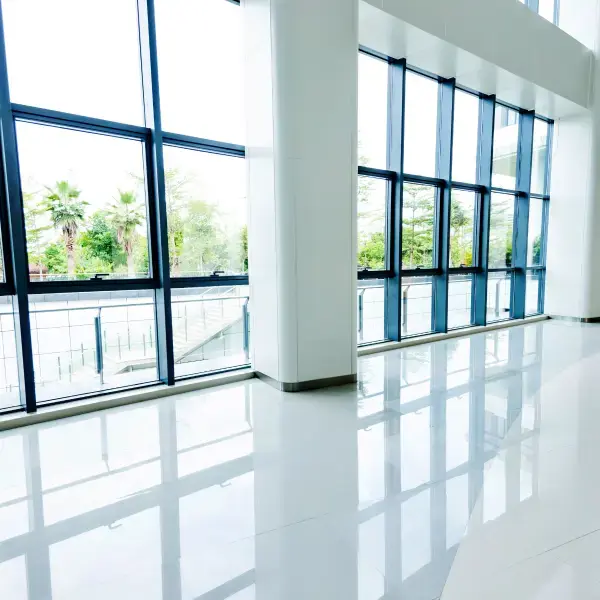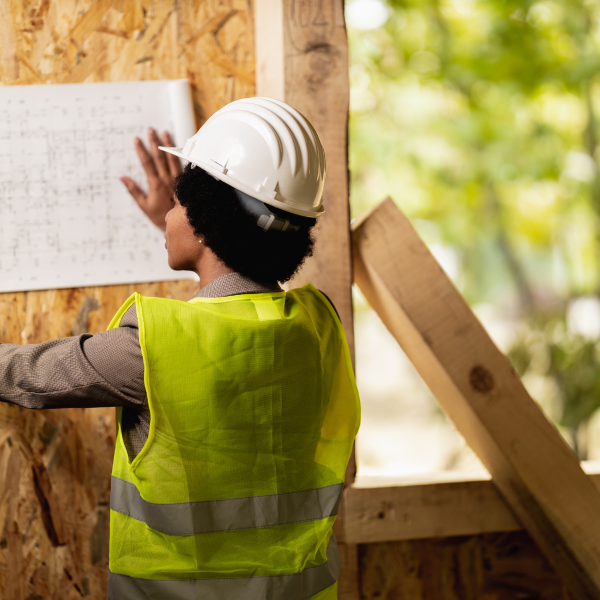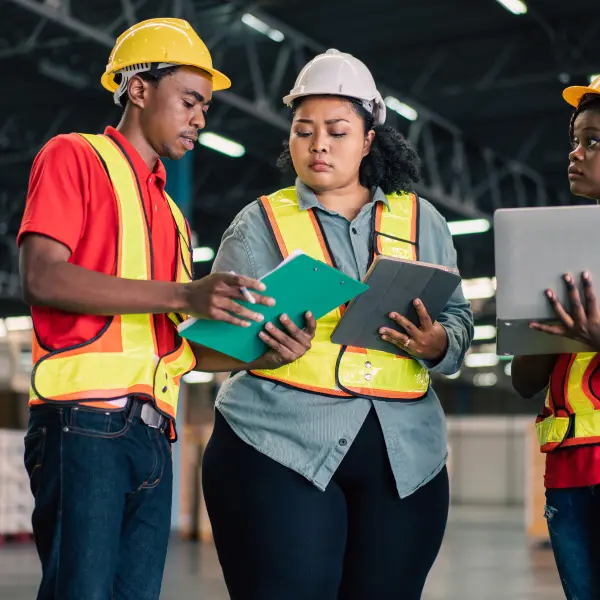In this inspiring interview, Sanmugi, a Civil and Environmental Engineering student at UNSW, wrote about her journey, from discovering engineering in high school to making meaningful impact through humanitarian work in Uganda. She opens up about the challenges and triumphs of being a female in STEM, the value of industry experience, and how her time working with ASEI Uganda and Love Mercy Foundation became a life-defining chapter.
When did you first know that you wanted to pursue a career in Civil and Environmental Engineering?
I first became certain about pursuing a career in Civil and Environmental Engineering during my mid-year 12, after attending university open days. Initially, I had considered entering the health field to make a positive impact but realized it wasn't the right fit for me. Given my strong aptitude for math and the influence of my father, who is a civil engineer, engineering emerged as a compelling option. What truly solidified my decision was learning about civil and environmental engineering's potential to contribute to humanitarian projects and positively impact communities. From that moment on, I knew this was the path where my heart belonged, and I've been passionate about it ever since.
How is your experience studying Civil and Environmental Engineering?
My experience studying Civil and Environmental Engineering has been incredibly fulfilling. I've found immense joy in building valuable connections and friendships throughout my degree. While the challenges of Covid-19 impacted my studies and motivation, I turned adversity into opportunity by actively participating in extracurricular university societies and engaging in projects like Drought Resistance in Uganda, a student-led initiative. These experiences have not only enriched my learning but also allowed me to travel abroad, gaining invaluable insights and cultural experiences. Studying alongside friends and fostering strong teamwork has been pivotal in navigating through challenging subjects, making the journey both rewarding and enjoyable.

Are you doing any work besides your education and how are you balancing the two?
Besides my studies, I am currently gaining practical experience as an undergraduate engineer at CPB Contractors, where I work part-time. Additionally, I serve as a student ambassador at UNSW and volunteer to teach Tamil at Saturday schools, which is deeply meaningful to me as it connects me with my heritage. Balancing all these commitments can be challenging, especially during busy periods like exams and program deadlines. However, I've found that proactive planning, a strong support network of family and friends, and a deep-seated motivation and passion for what I do are crucial in maintaining harmony. Learning to prioritize and sometimes decline additional opportunities has also been essential for preserving my mental well-being and sustaining a healthy balance.
What engineering skills do you find relevant to your current role at the workplace?
In my current role at CPB Contractors, I've found that while technical skills are crucial and are primarily learned on the job, it's the interpersonal skills honed through university extracurricular activities that truly complement my engineering expertise. These activities, such as taking on leadership roles, managing responsibilities, and collaborating effectively in teams, have been invaluable. They've sharpened my abilities in communication, teamwork, and problem-solving, which are essential when interacting with subcontractors, resolving conflicts, and navigating ethical decisions in the workplace. These skills not only enhance productivity but also foster a positive work environment conducive to achieving project goals effectively.
How has your university helped you gain the much-needed work experience?
UNSW has played a pivotal role in preparing me for my engineering career through a range of enriching opportunities. Participating in roles like university ambassador, engaging in student-led projects such as the Drought Resistance in Uganda initiative, and being active in various societies have been instrumental. These experiences have not only honed my technical skills but also equipped me with invaluable interpersonal and leadership abilities that set me apart in job applications. My advice to future students is to embrace every opportunity offered by their university. It's a nurturing environment that encourages experimentation, innovation, and initiative, fostering growth and preparing students to make meaningful contributions both during their studies and beyond.
How has the industry experience gained over the last few years shaped your education and career journey in engineering?
The industry experience I've gained in recent years has been transformative in shaping my educational and career journey in engineering. Working across various sectors including civil and environmental fields, design, and on-site projects has provided invaluable insights into my professional preferences and priorities. Unlike many who discover these aspects only after years in full-time employment post-graduation, I've had the privilege of understanding early on what resonates with me and what drives my passion. This firsthand knowledge not only guides my current career decisions but also validates my choice to pursue Civil and Environmental Engineering. Moreover, my industry experience has underscored the relevance of my university studies. For instance, studying concrete structures while concurrently working in the paving team has allowed me to directly apply theoretical knowledge to practical scenarios. This synergy between academia and industry has not only deepened my understanding but also enhanced my ability to contribute effectively in the workplace.

What challenges have you faced as a female engineering student, and do you have any hacks for overcoming them?
As a female engineering student, I've encountered distinct challenges that vary between my experiences in civil and environmental engineering roles. In environmental engineering, where I've predominantly worked with other females, inclusion has never been an issue. However, in civil engineering positions, I've often found myself as the lone woman in teams, facing a noticeable gender gap. This environment has at times led to feelings of not being taken seriously or belonging, and occasionally encountering indirect sexism. It's clear that more efforts are needed to achieve gender balance in engineering.
What has helped me navigate these challenges are strong support systems from friends and family, and maintaining transparent communication with my colleagues. I've learned the importance of speaking up and holding my ground, asserting my expertise and value in the workplace. As females in STEM fields, we play a crucial role in driving this change by inspiring more women to pursue engineering careers and advocating for inclusivity and equality.
What opportunities do you see for women within engineering?
There are tremendous opportunities for women within engineering that are continuously expanding. As societal perspectives evolve, more organizations are recognizing the value of diversity and actively seeking to increase female representation in engineering roles. This shift not only creates a more inclusive work environment but also fosters innovation through diverse perspectives and approaches to problem-solving.
Women in engineering have the opportunity to lead and innovate in various disciplines, from civil and environmental engineering to mechanical, electrical, and beyond. Initiatives promoting STEM education for girls and mentorship programs are paving the way for future generations of female engineers. Additionally, advocacy for workplace policies that support work-life balance and career progression are opening doors for women to thrive in their careers without compromising personal priorities.
Ultimately, the opportunities for women in engineering are vast and diverse, offering avenues for professional growth, leadership, and meaningful contributions to society through their expertise and passion for innovation.

What, if anything, are you currently watching or reading?
Lately, between work, university, and adjusting to life with my new dog, I haven't had much time for reading or watching shows. However, I do make an effort to stay informed about important news stories. When I do find a moment, I enjoy relaxing with rom-coms or diving into psychological thrillers.
Lastly, about your past industry engagement with partners in Africa; what are your fondest memories working with ASEI Uganda and Love Mercy Foundation?
Working with ASEI Uganda and Love Mercy Foundation in Africa was beyond memorable—it was an experience I cherish deeply and struggle to put into words. Traveling to Uganda stands out as the most enriching and unforgettable journey of my life. From forging meaningful connections and meeting incredible individuals to immersing myself in Afro music, every moment was a highlight. The warmth and positivity of the people in Uganda left an indelible mark on me; their kindness and carefree spirit resonated deeply. Beyond the professional insights gained, learning to collaborate effectively and gaining a deeper understanding of their culture were invaluable to me. It was an experience that not only broadened my perspective but also filled me with immense gratitude for the opportunity to contribute meaningfully.